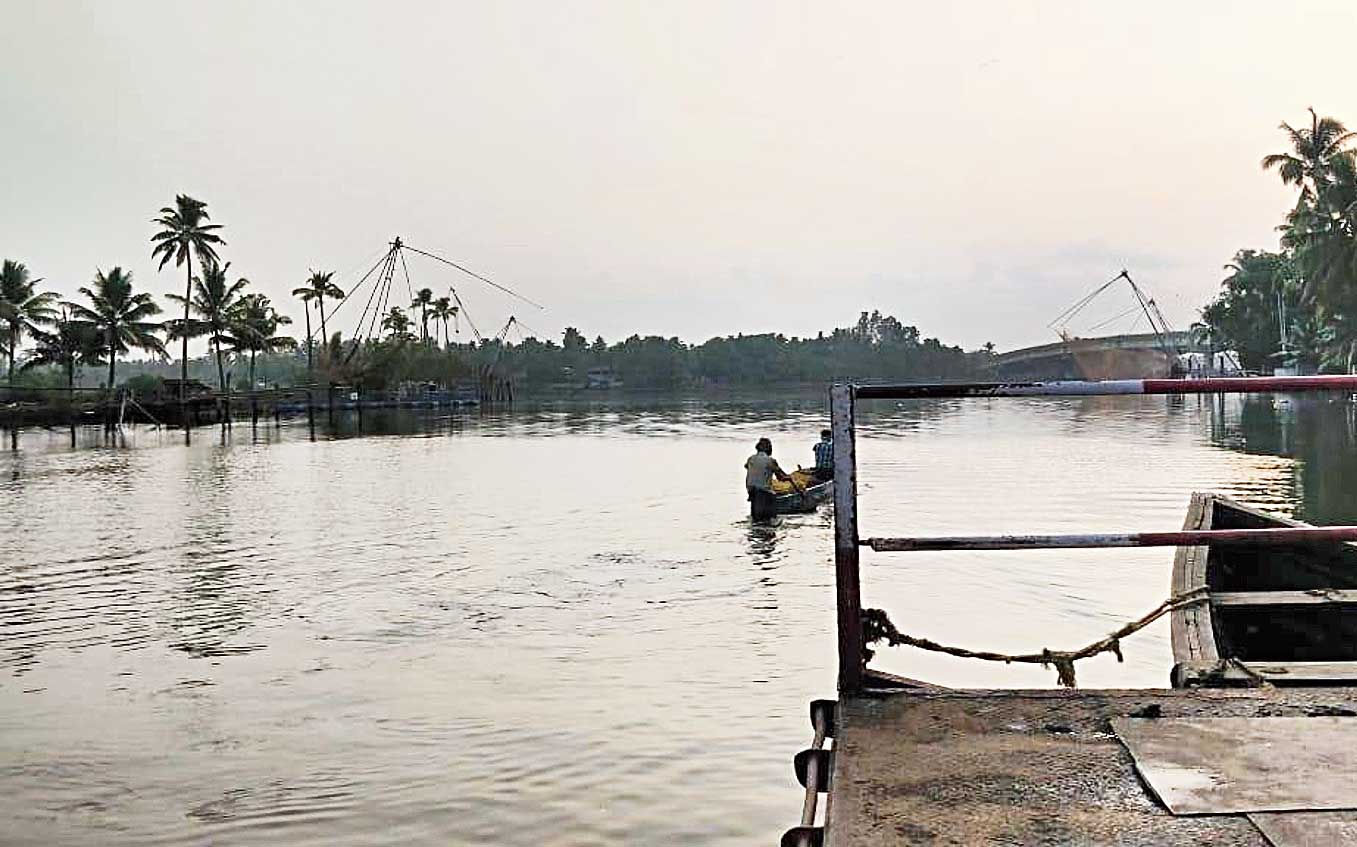Athey, aane medikunnathinu munpe thoti medikkanam (Before you buy an elephant, you should get an elephant goad, or a bullhook — a tool used to train the mammals) — the old man’s quip smacked of quintessential Kerala.
There are many such proverbs and observations in Malayalam that sieve out clutter for clarity.
We were on one of the islands between Ernakulam and North Paravur. Three runners tackling a lovely route — just over a half-marathon — from Edappally to Paravur amid a heat wave in Kerala.
Truth be told, the weather that April morning was a bit forgiving. The preceding days had felt like sauna — hot and humid. The morning of the Paravur run was tolerably warm but the humidity remained. My friends — Naushad and Vijayan — had done a superb job designing the route. This one, after a while, veered off a well-built highway and made for the first of the ferries that would take us to a couple of islands and the rather intimate experience of running on their narrow roads. It was ambiance distinctly slow in pace compared to Ernakulam. In fact, one of those islands didn’t have a proper road. It had instead a broad cement path. Vishu — the Malayali New Year — had just gone by and Easter was approaching. Prayer meetings were underway at the churches we passed. The 2019 Lok Sabha election made its presence felt through posters on boundary walls and party symbols drawn on the road. We — as well as every passing pedestrian — stamped over those symbols. Vehicles drove over them. The logic behind painting symbols to be trampled upon so, is beyond my grasp.
As the day warmed up, reaching a ferry was opportunity to rest for my progressively wilting self. Ferries on these small islands where people seemed to know each other, were an informal affair. Sometimes, the boat is there, the customers are there but the driver is absent. You look around puzzled. Everybody is waiting. You ask and the explanation is provided: oh, he has gone to his house for breakfast. You could imagine a window somewhere nearby, beyond which, sat the ferry driver sipping tea, having breakfast, watching his customers gather. He knows the limits of their patience. They know he will come; eventually. For city dwellers like my friends and I, ferries are romantic, reminiscent of a slower past when Kerala felt like Kerala. The view from the islands is different. They have a longstanding demand for bridges. At one place, the ferry operated like threatened species for the bridge, nearly complete and awaiting finishing touches loomed some distance away. What would happen to the ferry when the bridge becomes functional? Asked, a man on the ferry retorted, “the bridge is not entirely complete. If it was, the ferry wouldn’t be there. Would it?” Two men in a canoe rowed by, unhurriedly. There was neither the noise of ferry engine nor the arrogance of traffic to be, in their passage.
We met the old man at the final ferry. A big, hefty concrete bridge straddled the backwaters here. It stood high above the waters and short of land at both ends. The government — so the old man said — hadn’t yet worked out details of land acquisition for the bridge to truly connect. He was utterly cynical about the bridge and similar others around. “Every election they make tall promises. We get taken for a ride,” he said, before launching into the earlier cited proverb, which when translated means: before you buy an elephant, you should get an elephant goad (bullhook).
“What is the point in having a bridge that doesn’t connect? They should have secured land first and then built it. Now it sits there like an elephant,” he said.
The most visible worries about Kerala grew similarly; promise transformed to rogue elephant. The state has lifestyle problems related to affluence; high level of consumerism, reluctance to work unless it is well paid or socially respectable, garbage piling up, environmental degradation, lonely households and families caught between tradition and change. Reasons are many. Among them — inflow of money, remittance economy, demographic profile (it influences thinking), social structure and continued premium for a well-settled life. It is the biggest elephant of all and tackling it will find no mention on anyone’s election manifesto.
The ferry driver, who had gone home for tea, appeared. The old man drove his scooter on to the ferry — essentially a platform on two canoes with rusty engine for propulsion. We moved by the side of the bridge, like an ant in water next to an elephant cooling off in the heat. By evening, it was my turn to escape the summer heat. I checked into Metro Pod, a new air conditioned dormitory for backpackers at Ernakulam’s KPCC Junction, called so after the Kerala Pradesh Congress Committee (KPCC). The Congress party’s regional office has functioned from here since 1957. Until recently, it used to be in the same building as Metro Pod. Once the party vacated, the third generation owners didn’t want to alter the building’s structure. They elected to work around it and find a suitable function. The well-kept dormitory fetched me sleep and respite from the heat. The KPCC office, I was told, has shifted to another building nearby.
The writer is a freelance journalist










